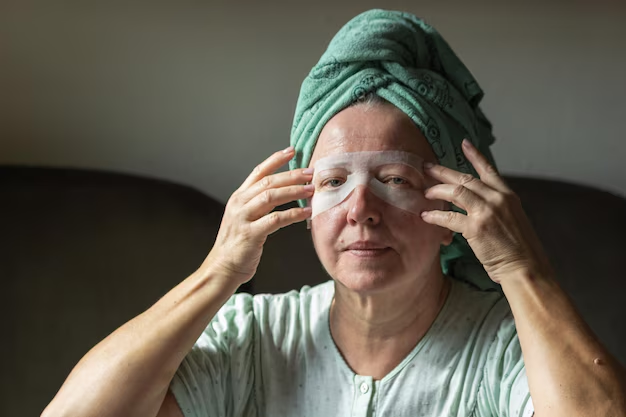Managing Eczema Around the Eyes: What You Need to Know
Imagine waking up in the morning, glancing into the mirror, and being greeted by red, itchy skin around your eyes. For many, this is a daily reality. Eczema around the eyes can be both uncomfortable and distressing, often prompting individuals to seek effective ways to manage the condition. If you're experiencing this, you're not alone. Let's explore how to address eczema around the eyes, bringing you a step closer to comfort and confidence.
Understanding Eczema
Eczema, also known as atopic dermatitis, is a chronic skin condition characterized by itchiness, redness, and inflammation. While it can affect any part of the body, having it around the eyes poses unique challenges due to the skin's thinness and sensitivity in this region. Recognizing the symptoms and understanding the nature of eczema is the first step towards effective management.
Symptoms Around the Eyes
- Redness: Often, the skin around the eyes appears red and inflamed.
- Itchiness: This can be one of the most bothersome symptoms, leading to scratching that worsens the condition.
- Swelling: The area might puff up, giving a swollen appearance.
- Flakiness or Dryness: Skin may become dry, flaky, or even crusty at times.
Exploring Common Triggers
Understanding what triggers eczema flare-ups can be instrumental in managing symptoms. Common culprits include:
Environmental Factors
- Pollen and Dust: These allergens can aggravate sensitive skin.
- Weather Changes: Extreme cold or heat can exacerbate symptoms.
- Indoor Irritants: Smoke, fragrances, and harsh detergents can trigger reactions.
Personal Care Products
- Cosmetics: Some makeup products contain irritants that cause flare-ups.
- Skincare: Soaps and creams with strong fragrances or alcohol can irritate the delicate skin around the eyes.
Dietary Concerns
Some people report that certain foods seem to worsen their eczema. It may be beneficial to watch out for:
- Dairy and gluten: Known to cause reactions in some individuals.
- Processed foods: These often contain preservatives or additives that may irritate the skin.
Approaches to Managing Eczema Around the Eyes
Finding the right way to manage eczema involves considering both lifestyle adjustments and topical treatments. Remember, it’s always best to consult with a dermatologist for personalized care.
Lifestyle Adjustments
Moisturize Regularly: Keep your skin well-moisturized with a gentle, hypoallergenic cream suitable for sensitive areas.
Identify and Avoid Triggers: Pay attention to what triggers your eczema and try to avoid these factors. Keeping a diary of flare-ups could help pinpoint specific triggers.
Use a Humidifier: This can keep your home environment moist, preventing your skin from drying out.
Stay Hydrated: Consuming adequate water aids in maintaining skin hydration from the inside out.
Skincare Routine Adjustments
- Gentle Cleansing: Use mild, soap-free cleansers around the eye area.
- Patch Testing: Before applying new products, conduct a patch test to ensure there’s no adverse reaction.
- Avoid Rubbing: Resist the urge to rub your eyes as this can worsen symptoms.
Topical Solutions
- Emollients: Regularly apply these to lock in moisture.
- Cold Compresses: Apply a cold cloth to soothe itching and reduce inflammation.
Seeking Professional Guidance
While home strategies are valuable, sometimes seeing a dermatologist is necessary. They can provide tailored advice and, if needed, appropriate medications.
Potential Treatments
- Prescription Creams: Corticosteroids or other anti-inflammatory creams may be prescribed for short-term relief.
- Phototherapy: In some cases, light therapy might be recommended as a treatment option.
When to Consult a Professional
- Persistent Flare-ups: If your eczema doesn’t respond to over-the-counter treatments.
- Infection Signs: If the affected area becomes more swollen, painful, or starts oozing, see a healthcare provider immediately.
Complementary Approaches
Embracing some complementary approaches can also be beneficial, alongside conventional treatments.
Diet and Supplements
- Omega-3 Fatty Acids: Found in fish oil supplements; they may help reduce inflammation.
- Probiotics: Some research suggests they might play a role in reducing eczema symptoms.
Stress Management
- Mindfulness and Relaxation: Techniques like yoga, meditation, or deep breathing can help manage stress, potentially reducing flare-ups.
A Word on Eczema and Makeup
For those who love cosmetics, eczema around the eyes poses a unique challenge. Here’s what to keep in mind:
- Hypoallergenic Products: Choose makeup labeled as hypoallergenic and free from common irritants.
- Minimal Makeup: Less is often more; keep your eye makeup minimal to reduce irritation.
- Clean Brushes Regularly: Prevent bacteria buildup by washing makeup tools frequnetly.
Practical Tips and Key Takeaways
- ✅ Identify triggers to minimize exposure.
- ✅ Moisturize frequently to maintain skin hydration.
- ✅ Choose skincare products wisely—opt for gentle, fragrance-free options.
- ✅ Consult a dermatologist if over-the-counter remedies are insufficient.
- ✅ Avoid rubbing affected areas to prevent worsening the condition.
- ✅ Stay informed about complementary therapies like probiotics.
In navigating eczema around the eyes, each step you take towards understanding and managing triggers is crucial. While the journey may require patience, the right strategies can significantly improve your comfort and quality of life. 🌟

